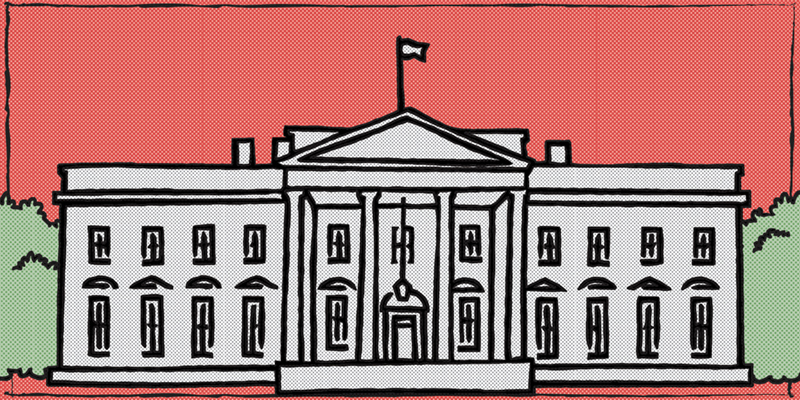Trump Administration Policies: Navigating the Impact on Georgia

By Andy Beck and Molly McLoughlin | Ohio River South
With President Trump securing another term and a new Congress in place, Georgia’s businesses, policymakers, and economic leaders are bracing for significant shifts in federal policy that could reshape the state’s economic trajectory. From high-level appointments of Georgia leaders to ambitious infrastructure plans and changes to healthcare and election administration, Georgia’s role in the national conversation has never been more critical. Here’s what we know so far:
Georgia’s Key Players in Trump’s Orbit
The Trump administration’s reliance on seasoned Georgia officials signals the state’s strategic importance. Notable appointments include:
- Former Rep. Doug Collins is set to lead the Department of Veterans Affairs, one of the federal government’s largest agencies.
- Former Sen. Kelly Loeffler is the new head of the Small Business Administration, aligning with Georgia’s thriving small business ecosystem.
- Former Sen. David Perdue’s appointment as U.S. Ambassador to China places a Georgia leader at the forefront of global trade diplomacy—a critical role as tariffs dominate policy discussions.
- Rep. Brian Jack, a first Trump term alum, will represent the freshman class on the steering committee that decides committee appointments, and Rep. Marjorie Taylor Greene will chair the Subcommittee on Delivering on Government Efficiency (DOGE).
With Georgia insiders in key positions, state leaders have a direct line to the administration, offering unparalleled opportunities to influence policy decisions that impact local industries.
Economic Development and Infrastructure: A New Era
President Trump’s ambitious AI infrastructure investment plan, highlighted by the creation of “Stargate,” could be a game changer for Georgia’s tech sector. With Atlanta already a hub for data centers and AI innovation, the influx of $100 billion in initial funding—and up to $500 billion in the long term—could further cement Georgia as a leader in cutting-edge technology. Partnerships with industry giants like SoftBank, OpenAI, and Oracle underscore the magnitude of this initiative.
Additionally, Georgia’s economy is expected to grow at a steady 2.4% in 2025, driven by population growth and sustained job creation, according to the University of Georgia’s Selig Center for Economic Growth. This outlook reflects a resilient economic environment amid policy changes.
Healthcare and Election Policy Shifts
Georgia’s healthcare landscape could see significant changes under the Trump administration. Governor Brian Kemp has proposed expanding Medicaid to include low-income parents with young children without imposing work requirements. If approved, this policy could increase access to healthcare for many Georgians.
Election integrity has also become a key issue, as recent changes to Georgia’s election rules, driven by Trump allies, have raised concerns about potential disruptions in future elections. The Georgia State Election Board’s new regulations could delay or challenge the certification of results, emphasizing the need for vigilance in maintaining electoral integrity.
Housing and Immigration Policies: Challenges and Opportunities
Trump’s second-term housing policies aim to roll back tenant rights introduced by the Biden administration, creating a more landlord-friendly environment. While this could boost investments in multifamily developments, it may also heighten affordability challenges for tenants.
On immigration, Georgia’s construction sector faces potential turbulence. Stricter deportation policies could exacerbate labor shortages, a pressing concern for developers amid a booming housing market. Balancing federal directives with local workforce needs will require careful navigation.
Trade and Tariffs: What It Means for Georgia
The Trump administration’s proposed tariffs—ranging from 10-20% on $3 trillion in imports and up to 60% on Chinese goods—could ripple through Georgia’s economy and its expansive freight and logistics industry. For the construction industry, rising material costs may inflate project budgets. Consumers, too, could feel the pinch, with higher prices on everyday goods.
However, Trump’s push for increased domestic oil production and streamlined regulations might offset some challenges, potentially lowering supply chain costs for industries across the board.
Corporate America’s Evolving Strategy
The relationship between corporations and the White House has shifted dramatically. After years of public opposition, businesses are now aligning with Trump’s administration to secure favorable policies. Georgia-based Coca-Cola’s custom inauguration bottles and big tech’s close influence reflect this new tone, signaling a willingness among corporations to collaborate.
For Georgia businesses, the path to influence now hinges on cultivating personal relationships with Trump and his allies—a strategy already adopted by national and state-level leaders.
Looking Ahead
The Trump administration’s policies present both opportunities and challenges for Georgia’s business community. Leaders must prepare for shifts in labor markets, trade costs, healthcare access, and regulatory landscapes while capitalizing on federal investment in technology and infrastructure. With key Georgians at the helm of influential roles, the state has a unique opportunity to shape national policy and drive economic growth.
Stay tuned for further updates as these policies take shape, ensuring Georgia continues to thrive in this evolving landscape.
